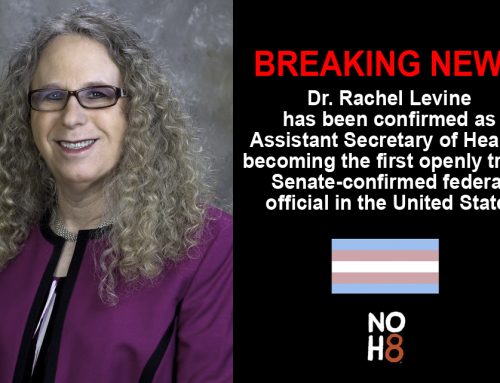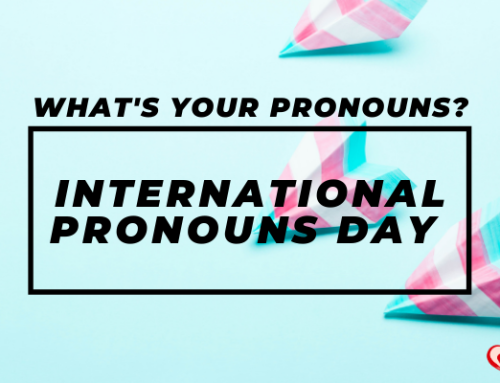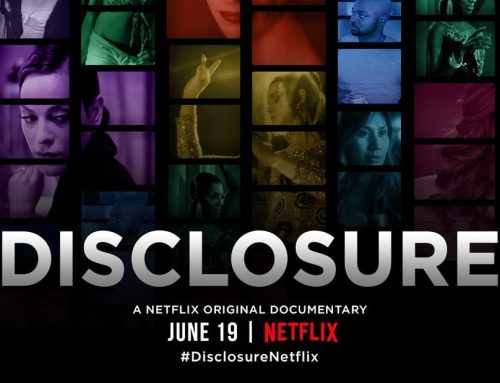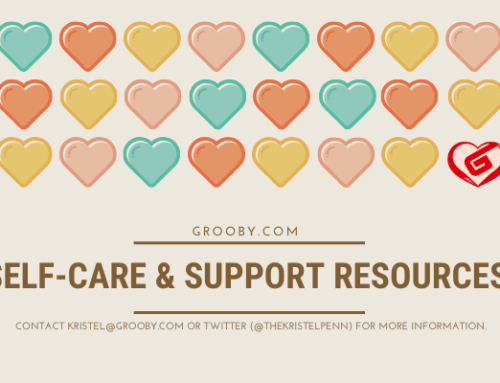‘Dirty Money’ Stigma Plagues the Transgender Adult Industry
By: Mary Emily O’Hara | September 11, 2015

Sex work can be a contentious issue in the transgender community. On one hand, trans women are frequently profiled as prostitutes while simply walking down the street. On the other hand, the sex industry has provided a haven for many trans folks who face endless cycles of discrimination when seeking other types of work.
A new project called the Trans Adult Industry Foundation (TAIF) aims to close the cycle by funneling a percentage of profits made by transgender porn companies into community groups and nonprofits that serve the immediate needs of trans people.
According to a TAIF press release, housing, call centers, emergency shelters, and advocacy as some primary areas of need, “with a specific focus on the needs of the performers in our community.”
The foundation is constructed on a simple idea: make money from trans porn, give money to trans people. However, the people launching the effort—porn star Buck Angel along with two employees of trans porn company Grooby—say their motivations are complex. It isn’t just that they want to help, it’s that they’ve tried to help before and have been turned away.
Angel, like many others in the LGBT community, believes that respectability politics widening gaps between the “good” LGBT movement fighting for equality with the mainstream through marriage and other norms, and the “bad” queer and trans subcultures that reject traditionally straight ideals in favor of BDSM, polyamory, sex work, and radical politics. This tension comes to a head when it comes to charitable or support service-focused donations.
Feminist, cisgender, queer-identified indie porn star Kitty Stryker said that she sometimes runs into blockades when trying to work as an advocate or donate money: “I’ve had to do it sort of secretly because a lot of these groups think that sex workers money is dirty money.”
And it’s not just the LGBT movement. Stryker said she has repeatedly run into the “dirty money” stigma in academia as well. When asked to speak at the University of New Hampshire in 2013, she recalled, a conservation group created an uproar asking whether the school’s purchase of Stryker’s plane ticket was akin to hiring a prostitute.
“It kind of blew my mind,” she said. “And I only have this problem in the States. I’m being flown out to England next week to speak at the University of Essex about how porn reinforces and challenges obscenity. There’s never been a problem there.”
Trans porn star Yasmin Lee, who crossed over into Hollywood with roles in movies like The Hangover Part II and Red Ice, bemoaned the fact that only “perfect role models” are chosen as the faces of the LGBT movement.
“No organization will say directly why they won’t consider you as a spokesperson for the community,” said Lee of her own experience. “It’s not as if they don’t understand or empathize with our circumstances. They simply want to… put what they think will be the best foot forward for their cause.”
Lee said that the adult industry is “very present in the trans community.” She also said she could ultimately understand why LGBT organizations weren’t rushing to sign up porn stars as spokespeople: “In an upstream swim against ignorance, you want the least baggage as possible.”
Part of that “upstream swim against ignorance” for the transgender community includes a certain adherence to appropriate terminology that has caused tension between the trans porn scene and activists. Earlier this year, the porn company Grooby—which celebrates its 20th anniversary next year and is the oldest company producing adult content featuring trans women—attempted to donate money to the suicide-prevention and education hotline Trans Lifeline. The resulting scuffle is now notorious in the queer and trans porn world.
Grooby operates a network of porn sites with names like ShemaleYum [NSFW] that shoot roughly 110 scenes each month. According to company founder Steven Grooby over 8,500 trans models have worked for the company since its 1996 inception. In an email to the Dot, Steven Grooby estimated the company’s revenue is “in the mid-seven figure range.”
It’s clear from the numbers that Grooby (the company) is in a position to funnel large amounts of cash back into the transgender community. But when Grooby tried first to sponsor Trans Lifeline, and later to donate proceeds from its annual calendar to the Transgender Law Center, it was rebuffed. Why? Because both organizations felt that Grooby’s use of the term ‘shemale’ to market its content was unacceptable.
“Our Executive Committee checked out your sites and some members raised a concern that ‘shemale’ was fairly ubiquitous not just in the URLS, but in the content inside the pay wall,” wrote Trans Lifeline’s board chair Christina A. DiEdoardo in an email to Grooby this spring, which the company posted on its blog. “After multiple internal meetings and some very spirited argument on all sides, we have reached a decision that we will not be able to work together with you as a corporate sponsor at this time.”
Trans Lifeline also requested that Grooby delete a banner on its site that directed users to donate to Trans Lifeline, to which Steven Grooby responded with outrage.
“So how many more calls will be missed because you don’t have the funds to staff the phones? What happens when a trans person harms themselves because they couldn’t reach out and talk to someone?” asked Steven Grooby in an email response to the Trans Lifeline board. “Personally, I’m incensed that you would allow personal issues to get in the way of genuinely being able to help people.”
According to a July article in International Business Times, transgender porn is a booming business. With companies charging more for trans porn than cisgender porn, ‘shemale’ is one of the most-searched adult terms online. When the Timesanalyzed the numbers, it became clear why companies like Grooby depend on the controversial term: using Google Analytics, ‘Shemale’ got 2.74 Million hits, ‘Tranny,’ 450,000 hits, ‘Tgirl’ has 90,500 hits, and ‘Transsexual’ has 60,500 hits.
Steven Grooby has repeatedly used these numbers to defend his marketing—to suddenly switch over from ‘shemale’ to ‘transsexual,’ much less ‘transgender,’ would kill his business in one fell stroke, putting thousands of models out of work.
But those outside of the mainstream transsexual porn market disagree. Several leading figures in the West Coast queer and trans indie porn scene—Chelsea Poe,Courtney Trouble, and Stryker—all told me that they felt ‘shemale’ was akin to hate speech.
“Personally I believe that by requiring their models to accept that kind of terminology, that is a violent act,” said Stryker. “I feel like Grooby creates and perpetuates a world in which trans women are not treated as women, are ‘other’-ed. And Grooby’s defense of that is that it’s marketable. Which is bullshit. There’s something to companies asking performers to use the terminology that they prefer.”
Poe and Trouble both said that Grooby’s rejection by trans nonprofits wasn’t due to some perceived rift between porn and the mainstream LGBT movement, but to allegations that the company itself is unethical. “Steven Grooby has a casual habit of ignoring trans voices that don’t conform with his business model,” said Poe in an email to Daily Dot. “I think the best use of his money would be to actually pay his models a living wage due to the amount of his performers that have unstable housing or who are currently homeless.”
Ready more at The Daily Dot.









 Any misuse, unauthorised use or copyright infringement of these images whatsoever will be met by criminal and civil litigations WITHOUT FAIL. Comments and problems to Webmaster.
Any misuse, unauthorised use or copyright infringement of these images whatsoever will be met by criminal and civil litigations WITHOUT FAIL. Comments and problems to Webmaster.